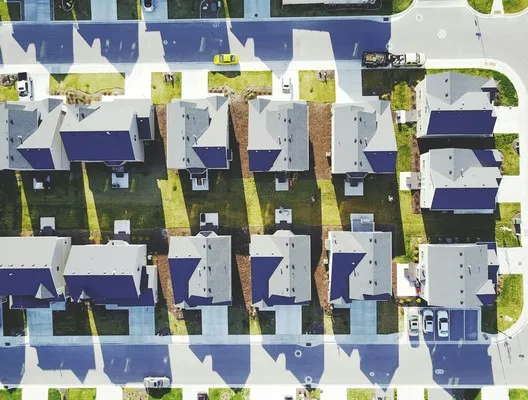Table of Contents
- Introduction to Urban Ecology
- Theoretical Foundations of Urban Ecology
- Urbanization and Environmental Impact
- Social Dimensions of Urban Ecology
- Strategies for Sustainable Urban Ecology
- Conclusion
Introduction to Urban Ecology
Urban ecology is a subfield of sociology and environmental studies that examines the relationships between human populations and their urban environments. It explores how social structures, economic factors, political systems, and environmental processes interact within cities. As urbanization continues at an unprecedented rate, understanding urban ecology becomes essential for developing sustainable cities that balance human needs with ecological health.
This article delves into the principles of urban ecology, its historical development, and its relevance in contemporary urban studies. It also explores challenges faced by urban ecosystems and strategies for fostering sustainability in the built environment. By understanding how cities function as ecological systems, urban planners, policymakers, and residents can work toward a more harmonious coexistence between human settlements and natural ecosystems.
Theoretical Foundations of Urban Ecology
The Chicago School and Early Urban Ecology
The concept of urban ecology was first popularized by sociologists from the Chicago School in the early 20th century. Scholars such as Robert Park, Ernest Burgess, and Roderick McKenzie applied ecological metaphors to understand urban development and social organization. They viewed cities as dynamic systems where different groups and institutions interact in ways similar to natural ecosystems.
Burgess’s Concentric Zone Model illustrated how urban areas expand outward in rings, with distinct zones representing different social and economic functions. This model suggested that cities, like natural ecosystems, evolve through competition, adaptation, and succession. As new populations move in, older residents often relocate to more desirable locations, resulting in continuous spatial and social restructuring within urban landscapes.
Modern Urban Ecology and Systems Theory
While early urban ecologists focused on human populations and spatial organization, contemporary urban ecology incorporates systems theory to understand the complex interplay between social, economic, and environmental factors. Cities are seen as open systems where resources flow in and out, affecting sustainability and resilience.
Urban systems theory emphasizes the interdependence between human and non-human elements, recognizing that urban areas are not separate from nature but rather embedded within larger ecological networks. This perspective informs policies that promote green infrastructure, circular economies, and climate resilience. By analyzing cities as part of larger biogeochemical and economic cycles, urban ecology provides valuable insights into how urban environments can be managed to reduce their environmental footprint while improving quality of life for residents.
Urbanization and Environmental Impact
Urban Expansion and Habitat Loss
The rapid expansion of cities often leads to deforestation, habitat destruction, and biodiversity loss. Urban sprawl encroaches on natural landscapes, reducing green spaces and disrupting ecological balance. This transformation alters local climates, contributes to air and water pollution, and fragments ecosystems. The loss of biodiversity in urban settings is not only an environmental concern but also a public health issue, as urban greenery plays a crucial role in mitigating air pollution and reducing urban heat stress.
Urban expansion also leads to the displacement of indigenous communities and small-scale farmers, further exacerbating social inequalities. The loss of agricultural land increases dependence on food imports, reducing local food security and making urban populations more vulnerable to supply chain disruptions.
The Urban Heat Island Effect
Urban areas experience elevated temperatures due to the urban heat island effect, where concrete, asphalt, and buildings absorb and retain heat. This phenomenon exacerbates climate change, increases energy consumption for cooling, and negatively affects urban dwellers’ health, particularly vulnerable populations. Cities with extensive green infrastructure, such as tree-lined streets and rooftop gardens, have been shown to mitigate the urban heat island effect by providing shade and increasing evapotranspiration.
Mitigation strategies include increasing tree canopy cover, designing buildings with reflective materials, and implementing smart urban planning strategies that integrate natural cooling mechanisms. Some cities have experimented with painting roads and rooftops white to reduce heat absorption, while others have invested in permeable pavements to reduce surface temperatures.
Air and Water Pollution
High population density and industrial activity in cities contribute to increased air pollution, leading to respiratory illnesses and environmental degradation. Water pollution from untreated sewage, industrial waste, and stormwater runoff further strains urban ecosystems and public health. Poor air quality disproportionately affects marginalized communities living in industrial zones or areas with limited access to healthcare, perpetuating environmental inequalities.
Urban areas also contribute significantly to freshwater depletion, as high water demand for residential, industrial, and recreational use often surpasses available resources. Efficient wastewater treatment, rainwater harvesting, and the use of greywater recycling systems are essential strategies to combat water scarcity in rapidly expanding cities.
Waste Generation and Management
Cities produce vast amounts of waste, much of which ends up in landfills or is incinerated, contributing to greenhouse gas emissions. Inadequate waste management leads to pollution and health hazards. Sustainable urban ecology promotes recycling, composting, and circular economic models to minimize waste and environmental impact. Many cities are now implementing zero-waste policies, encouraging businesses and households to adopt sustainable consumption and waste disposal practices.
Innovations in waste management, such as waste-to-energy plants and biodegradable packaging, offer promising solutions to urban waste problems. However, these approaches must be carefully implemented to ensure they do not create new environmental or social injustices.
Social Dimensions of Urban Ecology
Environmental Inequality and Justice
Urban environmental issues disproportionately affect marginalized communities. Low-income neighborhoods often lack green spaces, face higher pollution levels, and experience greater vulnerability to climate change. Environmental justice movements advocate for equitable access to clean air, water, and sustainable urban planning. Addressing environmental injustice requires policy interventions that prioritize the needs of vulnerable populations, ensuring that all residents benefit from sustainable urban development.
Green Spaces and Public Health
Access to parks and green spaces is linked to improved mental and physical health. Urban planners increasingly integrate green infrastructure, such as rooftop gardens, vertical forests, and urban farms, to enhance biodiversity and residents’ well-being. Studies show that exposure to nature in urban environments reduces stress, boosts cognitive function, and encourages physical activity, all of which contribute to public health improvements.
Urban Resilience and Sustainability
Get the full article AD FREE. Join now for full access to all premium articles.
View Plans & Subscribe Already a member? Log in.





